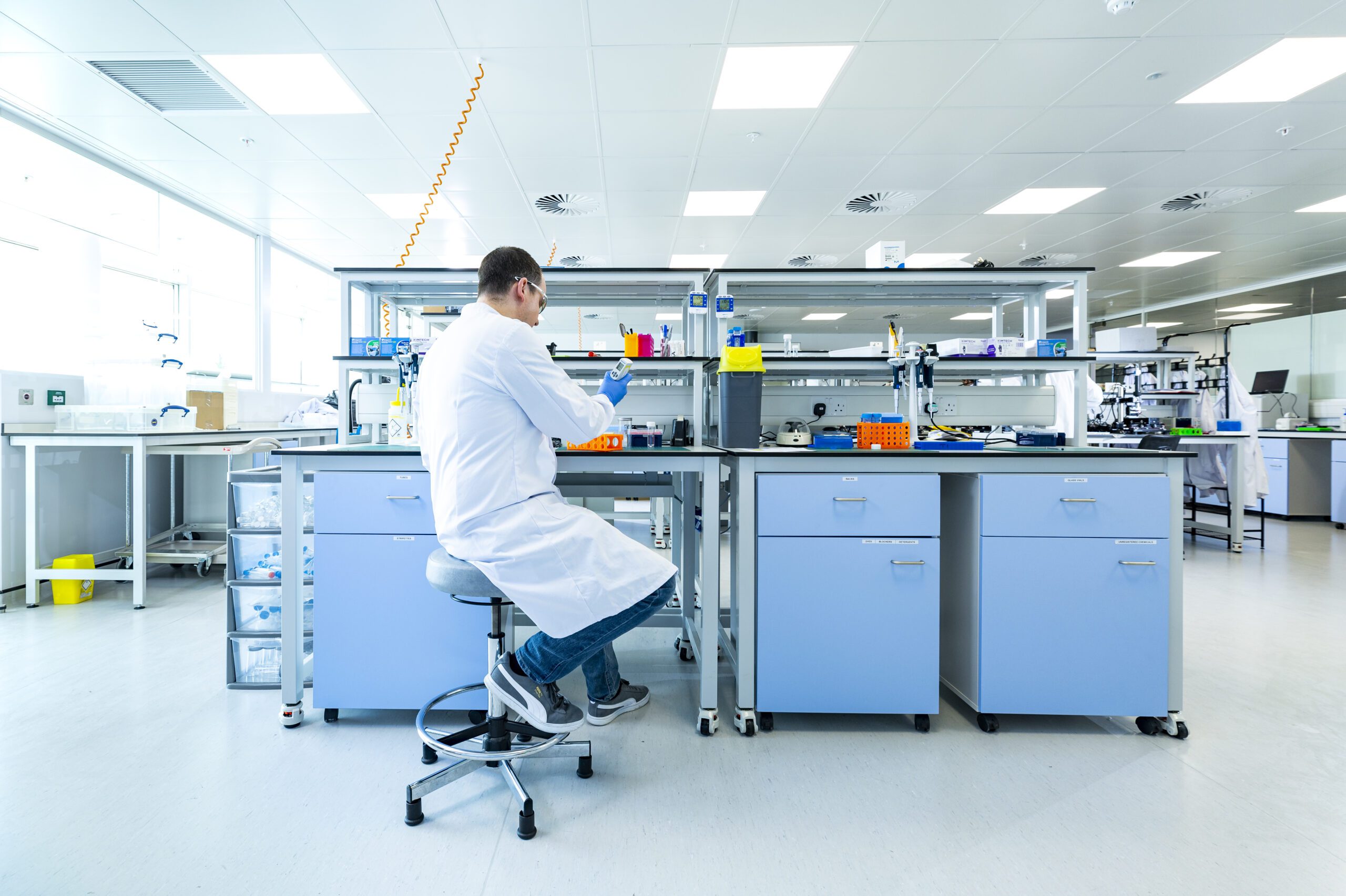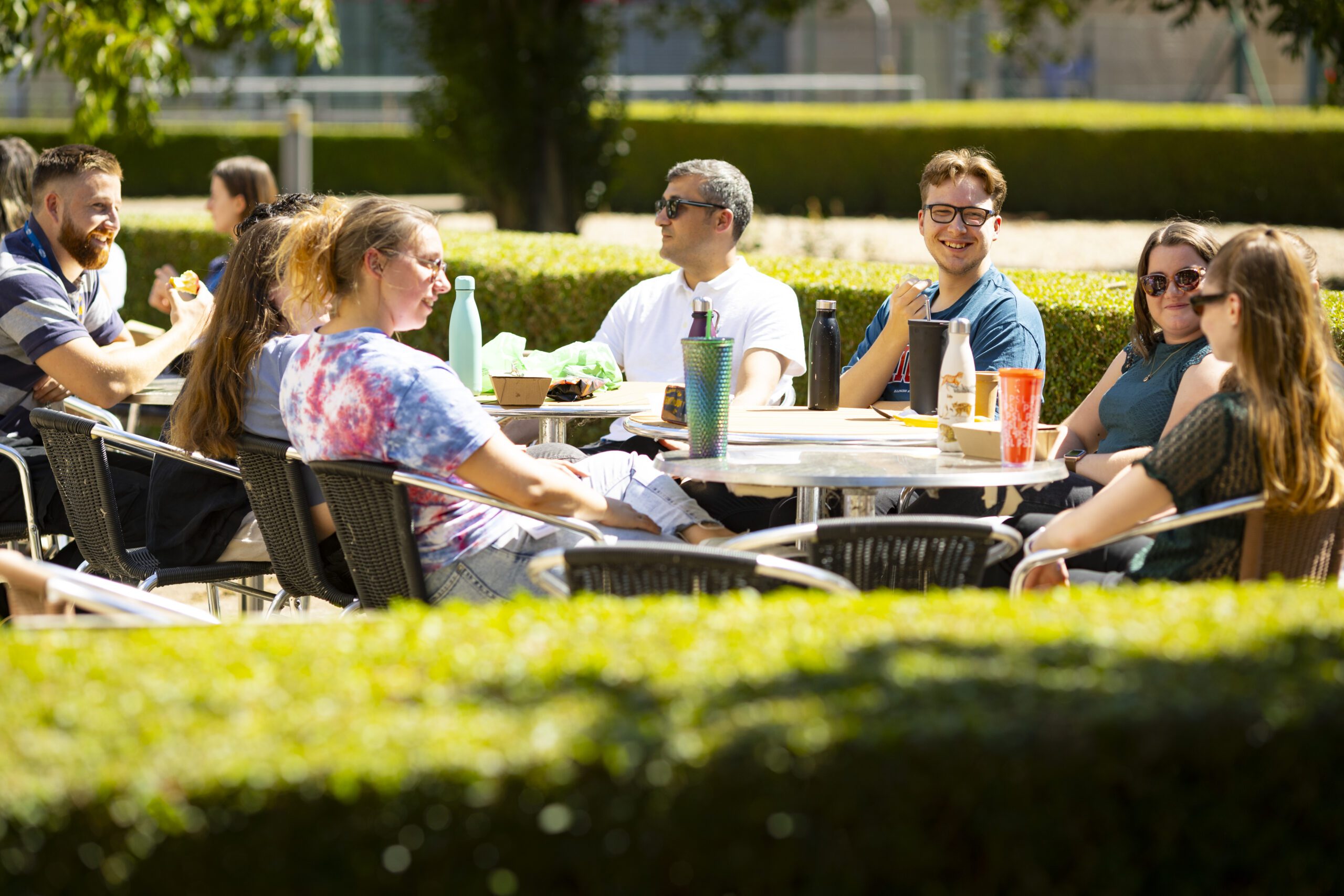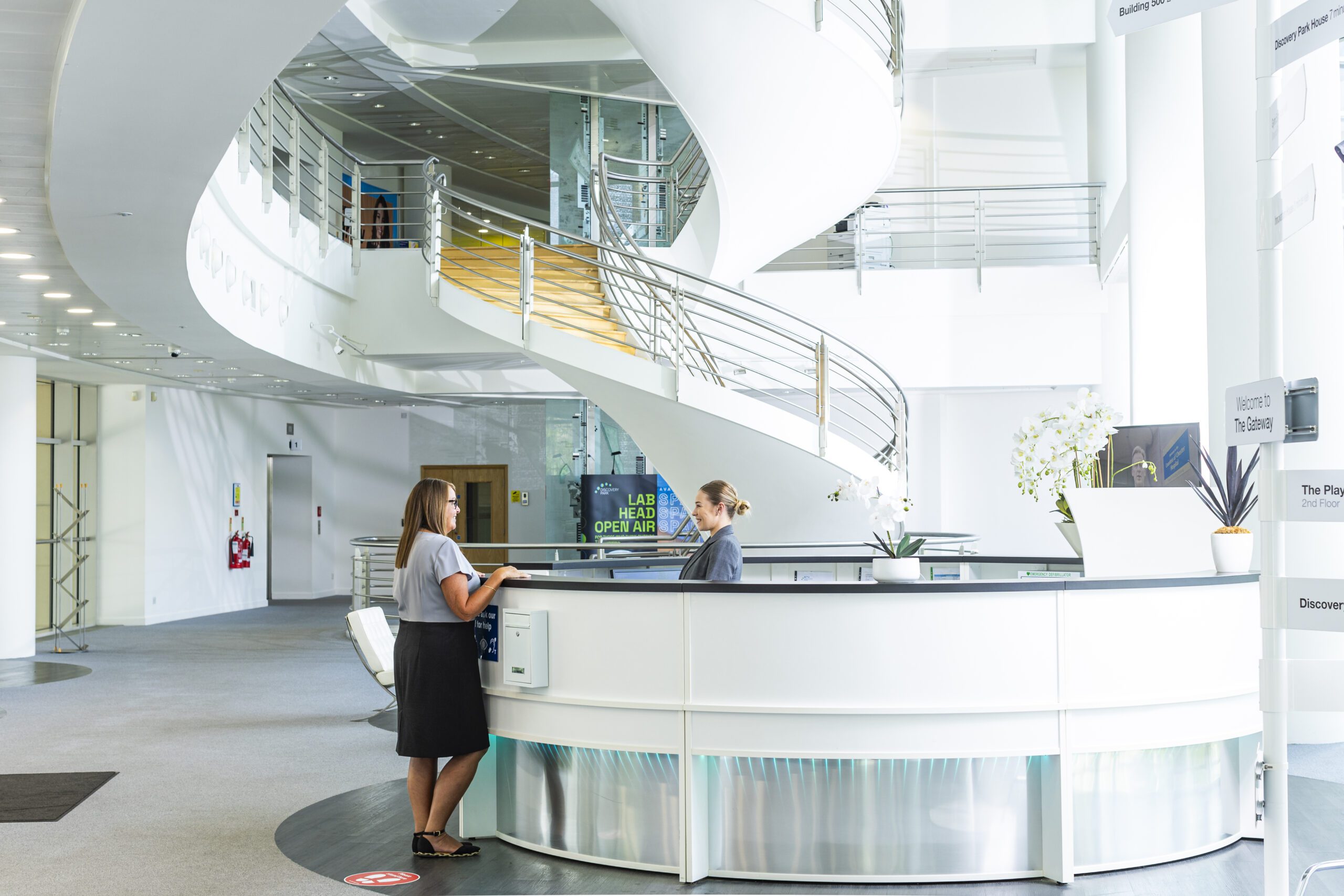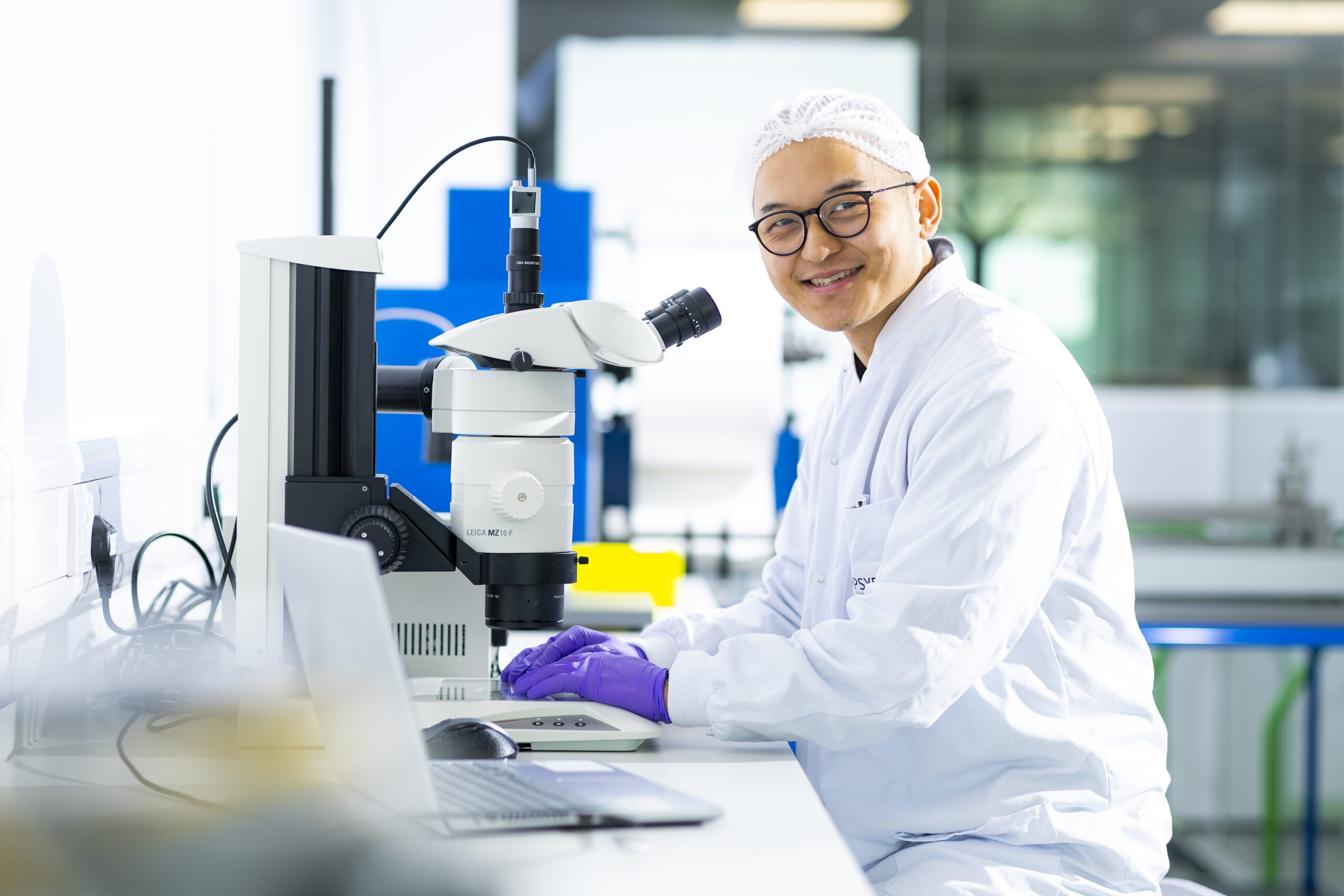- Discovery Park’s new programme ‘Discovery Spark’ provides business support, learning and mentoring over a period of eight weeks
- Includes a pitch competition for a prize package worth over £100,000, including £50,000 investment from Discovery Park Ventures and free lab space for 1 year at Discovery Park
- Deadline for applications closes midnight on 20th August 2023
Leading science and innovation campus, Discovery Park, in Sandwich, Kent has launched a new business support programme and competition, ‘Discovery Spark’. The programme will lay healthy foundations for future company success and equip early stage life science businesses with the skills needed when pitching to investors.
The free and hybrid programme running over the course of eight weeks, aims to ignite potential from the best of Discovery Park’s facilities, people and networks. Delivered in four in-person sessions, plus mentoring, networking and group learning, the sessions will cover teams, coherent communications, financials, market impact and pitch prep, all concluding with drill pitches at Discovery Park.
Discovery Spark is currently accepting applications from life-science start-ups, with a closing deadline of 20 August. From the first cohort of up to 12 companies, one business will be selected to win a prize package worth over £100,000, including £50,000 investment from Discovery Park Ventures, 1 year of free lab space at Discovery Park, plus wrap-around business support and dedicated mentoring.
Renos Savva, the original founder of Cambridge-based Drug Discovery CRO, Domainex and now Head of Innovation at Discovery Park, said: “Discovery Spark is essential for all future leaders looking to audit and hone their skills to excel in business and win investment. You will also have unique access to industry analysts, seasoned leaders and executive trainers for advice and support, plus a new network of peer entrepreneurs.
“The benefits will go even further for one company selected to win £50,000 investment, plus free lab space for 1 year at Discovery Park. This bespoke prize also includes business support from Barclays Eagle Labs and pro bono support from firms specialising in IP and legals, finances and tax, talent and board management, marketing and PR, and web and data management. On top of this, as an experienced bio-business facilitator and mentor, I’ll be providing dedicated and ongoing mentorship, coupled with other specialist colleagues at Discovery Park.”
Mayer Schreiber, CEO at Discovery Park, added: “Discovery Park is the ideal environment for starting and scaling companies, with a thriving incubator community and room to grow. We understand the pressure to find lab space and the pinch on many scaling or spin-out companies, so Discovery Spark is an important reflection of our commitment to use our facilities and network to bolster the next generation of life science leaders.”
Those selected for the programme will have the opportunity to pitch for the £50,000 investment and support package at an investment conference, sponsored by Discovery Park, taking place in London in November. A further ‘wildcard’ prize of free lab space will also be available to programme participants and voted for by attendees.
Applicants should register their interest on the Discovery Spark page for more information.
Key Discovery Spark Dates:
- Deadline for applications: Midnight 20th August 2023
- Programme Kick off: 26 September
To enter, companies will have been incorporated in the UK, demonstrated proof of concept and have the freedom to operate, with the end goal of pitching their business concept to a panel of investors, industry experts and partners to secure the prize.
Full details of entry and prize requirements are included at Discovery Spark.





